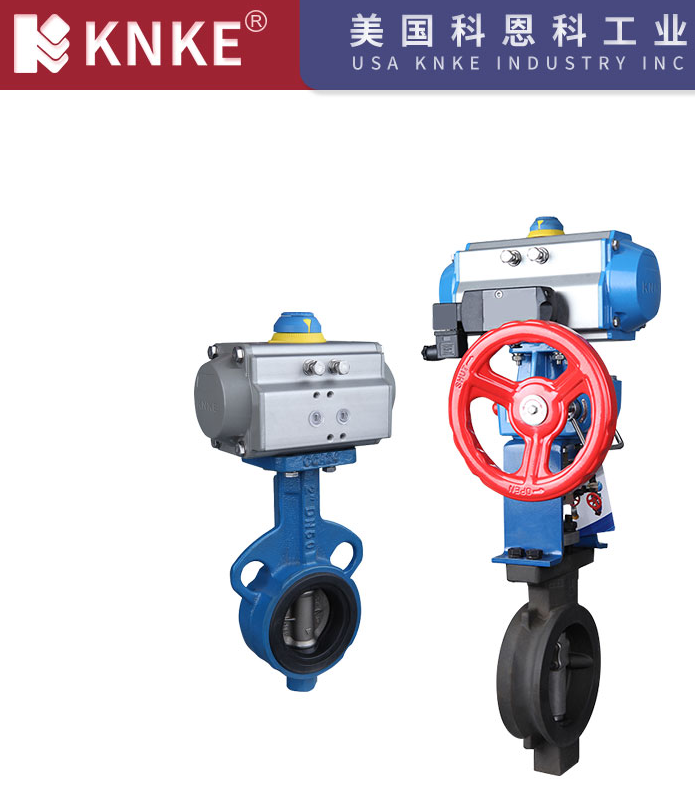Common Applications of Electric Valves
Electric valves, as automated control components, are playing an increasingly vital role in modern industry and daily life. They use electric power to open, close, or regulate valves, enabling precise control of fluids (liquids, gases, powders, etc.). Compared to manual valves, electric valves offer numerous advantages such as ease of operation, high automation, remote control, and precise regulation, leading to their widespread adoption across various fields.
Industrial Automation

Industrial automation is the core application area for electric valves. In various production processes, precise fluid control is crucial, and electric valves are perfectly suited to meet this demand.
- Oil and Gas: From crude oil extraction and transportation to refining, electric valves are widely used in pipeline systems, tank control, and media diversion and regulation within refining units. Their explosion-proof and corrosion-resistant properties make them an ideal choice for this industry.
- Chemical Industry: Chemical production demands extremely high levels of corrosion resistance, sealing, and precise control from valves. Electric valves play a critical role in processes like reactor feeding and discharge, mixing, and separation, ensuring production safety and efficiency.
- Power Generation: In power plants, including thermal, hydro, and nuclear facilities, electric valves control the flow and pressure of critical media such as boiler feedwater, steam, and cooling water, ensuring the safe and stable operation of generator units.
- Water Treatment: In water treatment facilities like waterworks and sewage treatment plants, electric valves control the transportation, mixing, and discharge of raw water, treated water, and wastewater, enabling efficient water resource utilization and pollution control.
- Metallurgy: The metallurgical industry, encompassing steel and non-ferrous metals, involves complex production processes. High temperatures, high pressures, and dusty environments pose severe challenges for valves. Electric valves control gases and cooling water in equipment like blast furnaces, converters, and rolling mills, ensuring smooth production flows.
- Pharmaceutical and Food: In the pharmaceutical and food industries, where hygiene standards are extremely high, electric valves are typically made of stainless steel and feature easy-to-clean designs with no dead corners. They’re used to control liquids, slurries, and other media during production, ensuring product quality and safety.
Building Automation and Civil Applications
Beyond industrial uses, electric valves are increasingly common in building automation and civil applications, enhancing comfort and convenience in homes and workplaces.
- Central Air Conditioning and Heating Systems: In central air conditioning and heating systems of large buildings, electric valves regulate the flow of chilled or hot water, enabling zone temperature control, improving energy efficiency, and providing a comfortable indoor environment for occupants.
- Fire Protection Systems: Electric valves in fire protection systems can quickly open or close during a fire, controlling the supply of fire extinguishing water, making them critical devices for safeguarding lives and property.
- Smart Homes: With the rise of smart homes, electric valves are also entering private residences. For example, they can be used for remote control of smart water meters and gas meters, and even integrated into smart irrigation systems for automated garden watering.
- Agricultural Irrigation: In modern agriculture, electric valves are combined with sensors and controllers to build smart irrigation systems. These systems automatically control water flow based on factors like soil moisture and crop needs, enabling precise irrigation and conserving water resources.
Other Specialized Fields
The applications of electric valves extend far beyond these examples, playing an indispensable role in various specialized fields.
- Shipbuilding: Electric valves are essential for precise control in ship systems such as ballast water, fuel, and cooling systems, ensuring stable operation and safe navigation.
- Aerospace: In the aerospace sector, electric valves are frequently used to control fuel, hydraulic fluid, and gases, demanding extremely high levels of reliability and precision.
- Testing Equipment: In various laboratories and research institutions, electric valves are used in testing equipment to precisely control fluid flow and pressure, providing stable and reliable experimental conditions for scientific research.
In summary, electric valves have become indispensable automated control components in modern industry and daily life, thanks to their advantages in automation, precise control, and remote operation. As technology advances, electric valves will become even more intelligent and versatile, and their application scope will expand further, bringing greater efficiency, enhanced safety, and improved experiences to all sectors.
